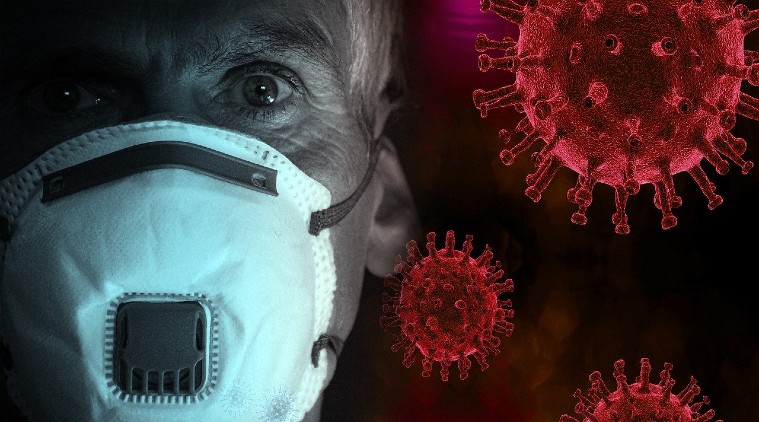 India is a tropical country and with temperatures soaring, it is well nigh impossible for the majority of our citizens to confine themselves into their small rooms. The same is the case with migrant labourers. (Representational/Pixabay)
India is a tropical country and with temperatures soaring, it is well nigh impossible for the majority of our citizens to confine themselves into their small rooms. The same is the case with migrant labourers. (Representational/Pixabay)
The lockdown curbs, because of the socio-economic implications, may have been eased with governments looking for a graded exit, but that doesn’t mean that life has returned to normal, says Somdatta Sinha, Adjunct Professor, Indian Institute of Science Education and Research (IISER) Kolkata, and visiting Professor, Ashoka University, Sonepat. The senior scientist tells The Indian Express why people need to be more careful now than ever before. Edited excerpts:
Most people are thinking that post lockdown everything will be normal. Is it so really?
That is sheer wishful thinking. It will only lead to spreading of the virus. One needs to understand how the virus is spread and be very careful and avoid going to crowded places and parties and gatherings, especially with those whose travel and contact histories are not known.
What is your advice for such people?
Maintaining social and physical distancing, using masks, sanitizers, hand wash for personal protection will continue to be very important. Places of gathering (schools, colleges, religious congregations, large celebrations) should remain prohibited. People must conduct daily life with minimum interaction and by maintaining Covid-related hygiene. The elderly and the children should continue to stay at home especially at a time when the number of cases is increasing exponentially. In a country like India, no lockdown can be perfect especially when people kept moving around without protection. I hope we learn how to spend time at home caring for each other learn to be more patient and find happiness in small things.
The virus has changed the way we live and the world will never be the same. Your views?
The human race is not a good learner. I also think our memory is short. It will be very useful to write more extensively in all languages and for all strata of people about what Coronavirus has taught us. This may instill some understanding in us. We should understand now how much our activities (sometimes mindless) pollute the environment. With lesser vehicles on road, less industrial discharge in rivers, less noise around, one could see cleaner skies, the water quality improved in rivers, and many places have birds chirping and people noticing!. Of course, many such activities are part of ‘development’, but much of it is due to our consumption practices.
Human beings are not supreme in this world and we must live in harmony with nature and others by sharing and not decimating each other.
As a scientist what do you feel about the scientific research post-outbreak of Coronavirus?
Scientific research on infectious diseases and public health must be given priority in a highly populated country like India. In our pursuit of money and fame, areas of research and development that are not fashionable or that do not fetch much money, are highly neglected. Most medical schools all over the world have Schools of Public Health associated with them. We can count them in India on the fingers of one hand. India needs to augment this sector of research and teaching, even at the school level. Medical infrastructure to handle the large scale inflow of patients in cities and areas far from cities is almost non-existent. This has to change. The medical professionals (at the village, town, and city levels) are not equipped with procedures to send information to a centralized facility, which may serve as “early warning system” when cases start coming up.
As scientists, we spend all our time and energy in teaching courses and doing research. But we have not done enough to spread the scientific way of thinking in the general population. So a lot of stigmatization of health workers, not understanding the implications of public health measures by conducting religious gatherings, believing in fake news, spreading unscientific thoughts has been a major lesson from the Coronavirus crisis. Scientific thought has to percolate in society.
What would be the impact on the education sector?
With teachers and students who are not conversant or comfortable with online teaching and limitations such as inadequate internet and other resources, no idea about how to assess exams, a high-stress level associated with the pandemic around, locked in an unusual home environment with no normal contacts with other friends and peers, ministry pushing hard to complete semester, the education sector is in a spin. The effects in this sector will be very severe in terms of learning.
What are the major challenges now?
Coronavirus can infect kings and queens, nation heads and common and the poor in the same way. But the response of people at different economic and social levels will be different depending on their monetary and social status, accessibility to health services, technology, etc. For instance, in slums, a number of people are bundled up in a small room, where social distancing is a far cry. India is a tropical country and with temperatures soaring, it is well nigh impossible for the majority of our citizens to confine themselves into their small rooms. The same is the case with migrant labourers.
With meager earnings, they cannot store enough food items, they go to markets everyday to get daily need items in small amounts. How to handle such a population who can be source of the virus for no fault of theirs is a major challenge before the government.